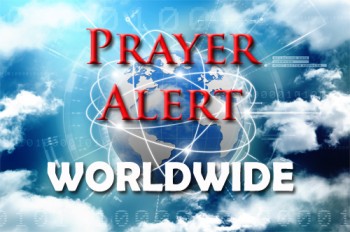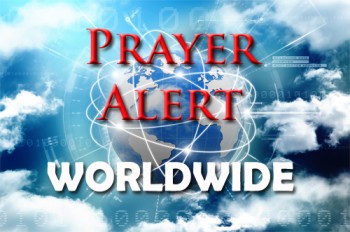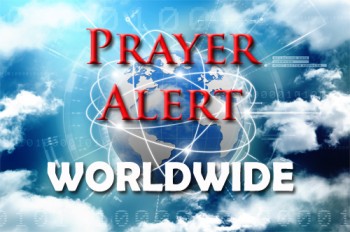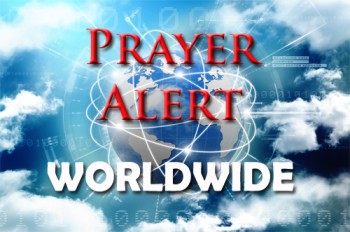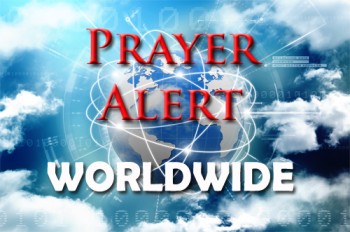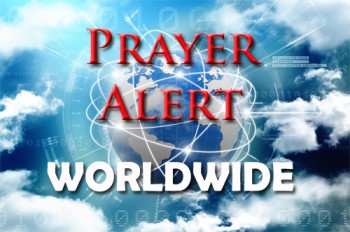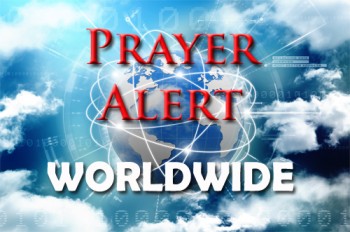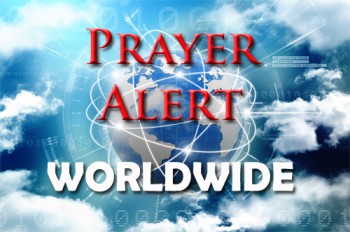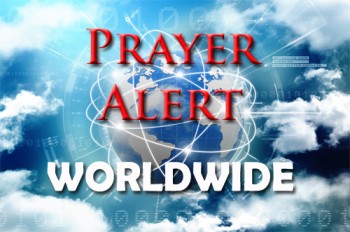Displaying items by tag: Nigeria
Nigeria: kidnapping scourge
The 2014 kidnap of 276 Chibok schoolgirls brought global attention to raids on schools in Nigeria. Now criminals are making money with copycat crimes. Nearly 300 girls were kidnapped from a boarding school last week, then released four days later after a ransom was paid. One girl said, ‘Most of us got injured, and we could not carry on walking. They said they would shoot anybody who did not continue walking. We walked across a river and they let us sleep under shrubs in a forest.’ Their release was secured through negotiations between government officials and the abductors. Kidnapping for ransom is a widespread criminal enterprise. Both rich and poor are seized by gunmen on almost a daily basis. Security personnel have also been held. The aim is to secure someone's release by raising funds from friends and relatives - or even selling their assets.
Nigeria: military kill Christian soldiers
Slaughtering Nigerian Christians continues unabated. An average of ten Christians are killed daily. A recent episode was at the hands of the government, which executed six Christian soldiers in Abuja on false charges. A Muslim colonel stole weapons from an armoury, but six Christian soldiers on duty got blamed for the theft. Their lawyer claimed they died ‘purely because they were Igbo and Christian. The government of today detests Christianity and detests the Igbo tribe.’ He had petitioned the government to provide a defence, but his attempt was denied and they were executed in secret. Nigeria’s constitution gives the military no authority to execute people, and prisoners should be able to appeal to a higher court. They didn’t get their rights. The military now claims that they were never executed, but they have not been seen by their families or in public.
Nigeria: Chibok girls and Boko Haram
In 2014, militants stormed a boarding school in Chibok and kidnapped 276 girls. Dozens escaped almost immediately; another girl was found in May 2016. After government/Boko Haram negotiations, 21 more girls were released, then 82 were freed in a prisoner swap in 2017. Since then, nothing had been heard of the remaining captives, until Halima Ali Maiyanga called her father to say she had managed to escape on 28 January. ‘She asked me, Is this my daddy? and she started crying. The crying was so much I couldn't hear her very well. I was crying too. I never expected to hear from her again. Our house is full of people rejoicing with us.’ Halima and others are safe and being looked after by the Nigerian army. While we praise God for their escape, please continue to pray for the remaining girls and their families.
Nigeria: ‘No evil will take away our faith’
A Christmas Eve attack by Boko Haram which left at least eleven dead and two church buildings razed to the ground prompted Nigerian bishop Oliver Dashe Doeme of Maiduguri to issue a rallying cry, insisting Islamist violence is doomed to failure. Bishop Oliver said he was undaunted by the attack in Pemi, near Chibok, where over 270 mostly Christian schoolgirls had been kidnapped in 2016. Speaking after the attack, in which a priest was abducted, he said, ‘One thing that Boko Haram will never take from us is our faith. We will never allow our faith to be taken away by any evil. Our faith is becoming stronger and stronger. 100 people were baptised in one parish on Christmas Eve. People are so committed.’ The Bishop said that Boko Haram’s actions were in fact strengthening the Christian faith; his diocese has more Catholics than when there was no Boko Haram crisis.
Nigeria: struggles
Bullets fly overhead as schoolboys scream out in fear. Chaos. Shrapnel. Hundreds go missing. This was the scene last week when Boko Haram militants stormed a high-school in Katsina, northern Nigeria, to abduct hundreds of students, 400 remain missing. It is a horror story reminiscent of the 2014 kidnapping of schoolgirls that prompted the viral #BringBackOurGirls campaign. The attack came just weeks after the brutal slaying of Nigerian farmers in Borno state by militants on motorcycles (thirty were beheaded). Nigeria's population is 50% Christian and 50% Muslim with groups like Boko Haram subscribing to a warped interpretation of Islam that justifies murder of Christians. In practice, both Christians and Muslims have been targeted in recent years. Pray for the government to improve its standards and protect vulnerable communities. Pray the authorities will also terminate the Special Anti-Robbery Squad’s contract to end the torture and extrajudicial killings that it has engaged in. STOP PRESS: it has now been reported that all the schoolboys have been released by Boko Haram. See
Nigeria: unrelenting insecurity as more farmers massacred
An attack on 28 November by Boko Haram terrorists on farmers working in rice fields in northeastern Nigeria killed at least 110 people. ‘The incident is the most violent direct attack against innocent civilians this year. Many women are also believed to have been kidnapped. Security forces and volunteer vigilante groups are searching to find people still missing. Locals say they recovered 43 bodies in villages near Maiduguri, the capital of the restive Borno state, which has been plagued by an armed campaign for over ten years. A local resident said, ‘Nobody knows the exact number of people killed. We can’t account for farmers who were there; we don’t know if they are hiding in the bush or if they were kidnapped.’ Pray for God to comfort the mourners. See also
Nigeria: police chief vows to take back streets
Protests against police brutality subsided after a violent crackdown: see Now the police chief has ordered more police resources after the curfew gave way to widespread vandalism and looting, including government food warehouses stripped bare. Shopping malls, TV stations, and banks were targeted, and also retail stores in popular Lagos shopping districts. Violence and looting have been reported in most states. Amnesty International said, ‘The turmoil has seen the worst street violence since Nigeria’s return to civilian rule in 1999. Wealthy politicians and individuals have been looted, emboldening hoodlums that crimes of this magnitude are achievable. In an effort to quell unrest, the government announced that the Special Anti-Robbery Squad (SARS) would be disbanded, and promised a host of reforms. But demonstrators are sceptical of government promises without clearly-specified timeframes. Pray for the police to successfully and peacefully prevent further hooliganism. See also
Nigeria: police shoot anti-brutality protesters
On 21 October Lagos police opened fire on protesters after twelve days of demonstrations against police brutality. The shootings took place at a toll gate after Lagos officials had imposed a 24-hour curfew on 20 million people in a bid to bring the protests to an end. But the demonstrations against the Special Anti-Robbery Squad (SARS) show little sign of slowing down. SARS should tackle robbery, kidnappings and other violent crime, but has been widely criticised for human rights abuses including torture, extortion and extrajudicial killings. Plain clothes police officers frequently target young men with tattoos, dreadlocks, and expensive cars arbitrarily. The Nigerian army has tweeted out stills of news reports about the ‘alleged’ shootings with the words ‘fake news’ plastered across them in red letters. However, Amnesty International said there is disturbing credible evidence that they actually took place. See also
Nigeria: ‘Sometimes there are days without any help’
Imagine what life is like when it is unsafe to live in your own home, or you can’t guarantee you and your children will have food each day? That’s the awful reality for many Christian women in northern and central Nigeria - on top of the grief and trauma brought about by violent conflict and killings. Tirham, a volunteer at an Open Doors trauma centre in Nigeria, says, ‘Sometimes there are days without any help from anyone for them to be fed.’ She was speaking about the impact of Covid-19 on daily life for many Christian women living in the shadow of violence. We are asked to pray that every Christian family affected by violence in Nigeria will be provided with food, shelter and safety, and that violent militant attacks will cease. Pray for continued strength, protection, and encouragement for Open Doors partners like Tirham, who come alongside those affected by persecution.
Nigeria: stop killing in Southern Kaduna
Since January there have been constant murders, looting, rape and abductions of Christians in Southern Kaduna. On 9 August a series of short videos entitled ‘Stop the Killings in Southern Kaduna’ was released as part of a campaign calling for an end to targeting Christian communities. The videos feature high-profile celebrities, actors, comedians, music artists and business executives. The president of the Southern Kaduna Peoples Union said, ‘There is no greater lie than the narrative that the killings in southern Kaduna are between farmers and herders. 75% of the victims were women and children’. CSW has called for effective action to address the situation and echoes the Nigerian entertainment industry which has spoken out about the relentless loss of life. CSW says, ‘We continue to call for urgent international interventions, including the convening of a special session of the UN human rights council, with particular focus on the current crisis in southern Kaduna and Plateau State.’

